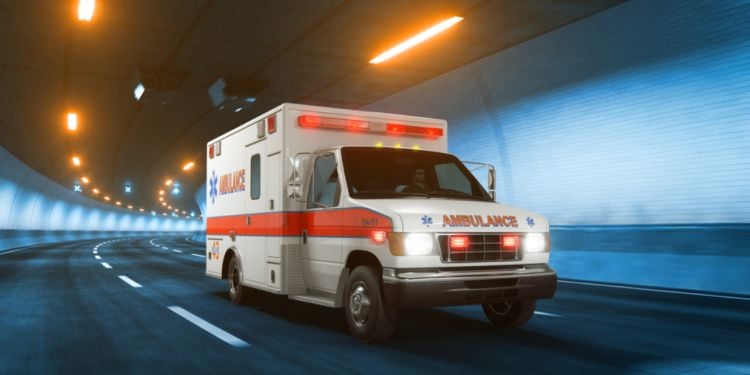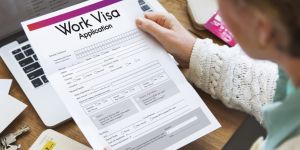
It is important to be prepared and aware of the available resources in case of an emergency or when needing assistance in the Austrian health system. Here is some information to help you navigate such situations.
The health system in Austria
The Austrian health system is generally very good. All employed people must have health insurance, and children up to the age of 18 are automatically covered by their parents' insurance. They can also stay on their parents' insurance until they are 27 if they are still in education and the family receives child benefits.
The exact coverage of the insurance depends on the employer or personal situation, so it's important to check the details. However, in general, all Austrian insurance policies cover the costs of doctor's visits and hospitalization. You may have to pay a small amount, called the deductible, for each doctor's visit. This is usually between 10 and 20 percent of the cost. Prescribed medicines are almost free, with a prescription fee of about 7 euros.
The three main Austrian health insurance companies are ÖGK (Austrian Health Insurance), SVS (Social Insurance for the Self-Employed), and BVAEB (Insurance Institution for Public Employees, Railways and Mining). Panel doctors, also called contract doctors, are general practitioners or specialists who have a contract with one or more health insurance funds. They bill their services directly to the social insurance providers via e-card. So, don't forget to bring your e-card to a doctor's appointment. The new e-card system also allows doctors to upload their prescriptions electronically.
People who don't have health insurance are treated in certain hospitals, such as that of the Brothers of Mercy.
There are pharmacies throughout Austria that are open at night or on holidays for emergencies. You can find out which ones are open in your region/district. Here is the official list of pharmacies open throughout the night for Vienna. If you're looking for a night pharmacy, ask for a "Nachtapotheke".
If you have questions about health and the occurrence of illnesses, initial contact with the telephone hotline 1450 can be very helpful. They will tell you what to do and where it is best to go.
In case of life-threatening illnesses, the emergency outpatient departments of the hospitals are open 24/7.
The emergency numbers in Austria
- European emergency call 112
- Fire brigade 122
- Gas emergency number 128
- Police 133
- Mountain rescue 140
- Emergency medical service 141
- Telephone helpline 142
- Rescue service/Ambulance 144
- Emergency call service children and young people 147
- Poison Control Centre 01 406 43 43
All numbers can be called free of charge from anywhere in Austria. The Euro emergency call can also be made from mobile phones throughout the EU without entering a PIN.
Good to know:
You can remember the number for calling an ambulance imagining that the two digits “4” facing each other are building a hospital bed.
In the event of acute danger (violence in the private sphere), or if a voice-based emergency call is not possible, a "silent emergency call" can additionally be sent to the police via the DEC112 smartphone app. You can download the app DEC112 here. Don't forget to register to be able to use the functions of the app. Alternatively, deaf or partially deaf people can still send an SMS to the number 0800 133 133.
Accidents in Austria
In case of injuries, call the health hotline or the rescue service, depending on the severity. If you call an ambulance, you will be taken to the nearest free hospital.
In the event of a road accident, while driving in Austria, you can call the police, the emergency medical service or the rescue service if you can, make sure to form an emergency lane so that emergency vehicles can reach the scene of the accident.
If you are working in Austria, first aid courses are offered free of charge in many companies and training places. If you are able, you should help the injured, but always call the ambulance, fire brigade, or police if someone needs help. Interfering with the emergency services can result in severe penalties.
When you are enjoying leisure activities in Austria, it is important to be aware of the risks. For example, if you are going hiking in the Austrian mountains, make sure to check the avalanche danger and thunderstorm forecast. Mountain rescuers in Austria often risk their lives to rescue missing people who have left unprepared for unknown areas. It is recommended not to go hiking alone in the mountains.
If your vehicle breaks down, call roadside assistance, such as ARBÖ. You can call 1-2-3 from anywhere in Austria or use the app to inform them of your position and the problem.
Unfortunately, many accidents happen at home. If the damage is only material, most of them are not serious. Household insurance against damage is not expensive and is worthwhile. And you can also include your pet.
Animals emergencies in Austria
You can call your veterinarian or one of the veterinary universities in case of emergencies concerning your pets. Here is a list, of where to bring your pet in case of an emergency. If you are in Vienna and have questions about wild animals or you want to report an injured wild animal or one in distress, contact the “Wildtierservice”: 43 1 4000-49090, email: wildtiere@ma49.wien.gv.at. During the night hours, in acute emergencies, call: 43 1 4000 instead.
If an animal is in danger or injured, please call the Austrian animal rescue service at 46662830745.
Violence at home
Domestic violence is a serious problem that affects people of all social classes, living situations, and regions. If you are experiencing domestic violence, there are resources available to help you.
The violence protection centers (Gewaltschutzzentren) throughout Austria can be reached at any time by calling 0800 700 217. They can provide you with information and support, and they can also help you file a police report.
If you are in immediate danger, you can call the police by dialing 112. You can also use the app DEC112 to make a silent emergency call.
There are also several women's shelters and counseling centers in Austria that can help you if you are experiencing domestic violence. The women's helpline against violence, 0800 222 555, offers advice in German, English, Bosnian-Croatian-Serbian, Romanian, Spanish, Turkish, Arabic, and Dari-Farsi.
You are not alone. Some people can help you. If you are experiencing domestic violence, please reach out for help.
Here are some additional resources that may be helpful:
The National Domestic Violence Hotline
The National Coalition Against Domestic Violence
The Rape, Abuse & Incest National Network (RAINN)
You are not alone. There is help available. Please reach out for help if you are experiencing domestic violence.
We do our best to provide accurate and up to date information. However, if you have noticed any inaccuracies in this article, please let us know in the comments section below.











